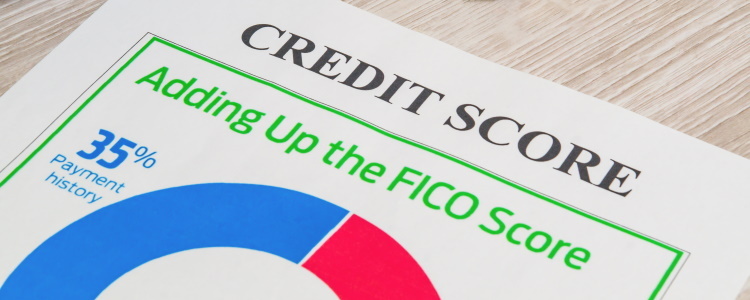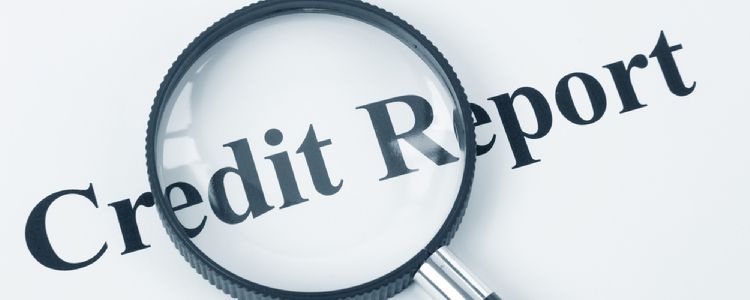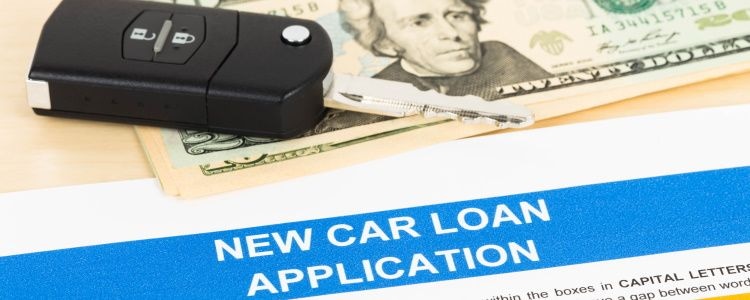One of the best things you can do to improve your credit score is to pay your bills on time. But there are actually many other aspects to your credit score, and we’re here to help guide you in repairing your credit history.
What’s in a Credit Score?
When you look up your credit score, that three-digit number may vary depending on where you look and who you ask. This is because there are a few different credit scoring models out there, but the one most commonly used by auto lenders is the FICO scoring model.
It's one of the oldest and most used, and it has five main categories that combine to make up your credit score:
- Payment history: 35%
- Amounts owed: 30%
- Length of credit history: 15%
- Credit mix: 10%
- New credit: 10%
As you can see, payment history is the most important aspect of your credit score. Car lenders, and most other types of lenders, use your credit score as a way to gauge your ability to repay credit. You can think of your credit score as a quick snapshot of your credit history, so it’s very important and vital to your borrowing power.
What’s in a Payment History?
 Seeing as payment history carries the most weight in determining your credit score, it should be the main focus when you’re looking to repair your credit in order to get an auto loan.
Seeing as payment history carries the most weight in determining your credit score, it should be the main focus when you’re looking to repair your credit in order to get an auto loan.
While the most influential thing you can do to improve your credit is keep up on all your bills and forms of credit, there are lots of other things that go into the category of payment history:
- Payment information on all your accounts (credit cards, car loans, etc.)
- How/if your payments are late (example: 30, 60, or 90 days)
- Amount owed on delinquent accounts and amounts in collections
- The number of past due bills or accounts
- Public records, such as bankruptcies
- The time that past due accounts were noted as “delinquent”
- Amount of accounts that were completed, or paid as agreed
Your payment history makes up 35% of your credit score, and as you can see, it has taken into account many different aspects of your creditworthiness. It's no wonder that lenders take your credit score seriously when you apply for credit! Just your payment history takes into account so much of your financial and stability, which in turn, gives lenders an idea of how you may handle future credit.
How Do I Improve My Payment History?
While paying your bills on time should always be a priority, you should also work to resolve accounts that are past due, and work with your creditors. The older a delinquent account, the less it impacts your credit history. So, although you may have a few missed payments, if you don’t add any more to your history, those older ones eventually fall off your reports.
Additionally, most negative marks are removed from your credit reports after seven years – including Chapter 13 bankruptcy, an auto repossession, and missed payments.
Rather than waiting for old debt to fall off your credit reports, you can take steps to do something about it. There are companies you can hire to help with correcting and cleaning up your credit reports, called credit repair companies. If you’re overwhelmed with your credit reports and don’t know where to start, one of these companies could be helpful for you.
Credit repair companies typically charge a monthly fee, and sometimes a start-up fee, and they dispute inaccurate accounts for you that are lowering your credit score. They contact creditors and collection agencies on your behalf to work through your debts, or remove errors (with your help) that may be present on your credit reports.
However, if the biggest downfall on your credit reports is missed or late payments, the best thing you can do for your reports is to resolve the delinquent accounts, and maintain a good payment history from now on.
Right now is also a great time to watch your credit score rise as you work to rebuild it, as you can request all three of your credit reports (from TransUnion, Experian, and Equifax) for free once a week until April 2021. You can request your reports here.
Rebuilding Your Credit With an Auto Loan
With payment history being the biggest player in your credit score, installment loans are a great way to improve your payment history. Car loans are usually a few years long, and if maintained, can stand to really give your credit a boost in points.
If you’re a bad credit borrower and you’ve been looking for a lender to work with your credit, you’ve come to the right place. Here at Auto Credit Express, we connect borrowers of all credit types to dealerships with bad credit auto loan options, and we do it for free. To get started, simply complete our no-obligation car loan request form.
















